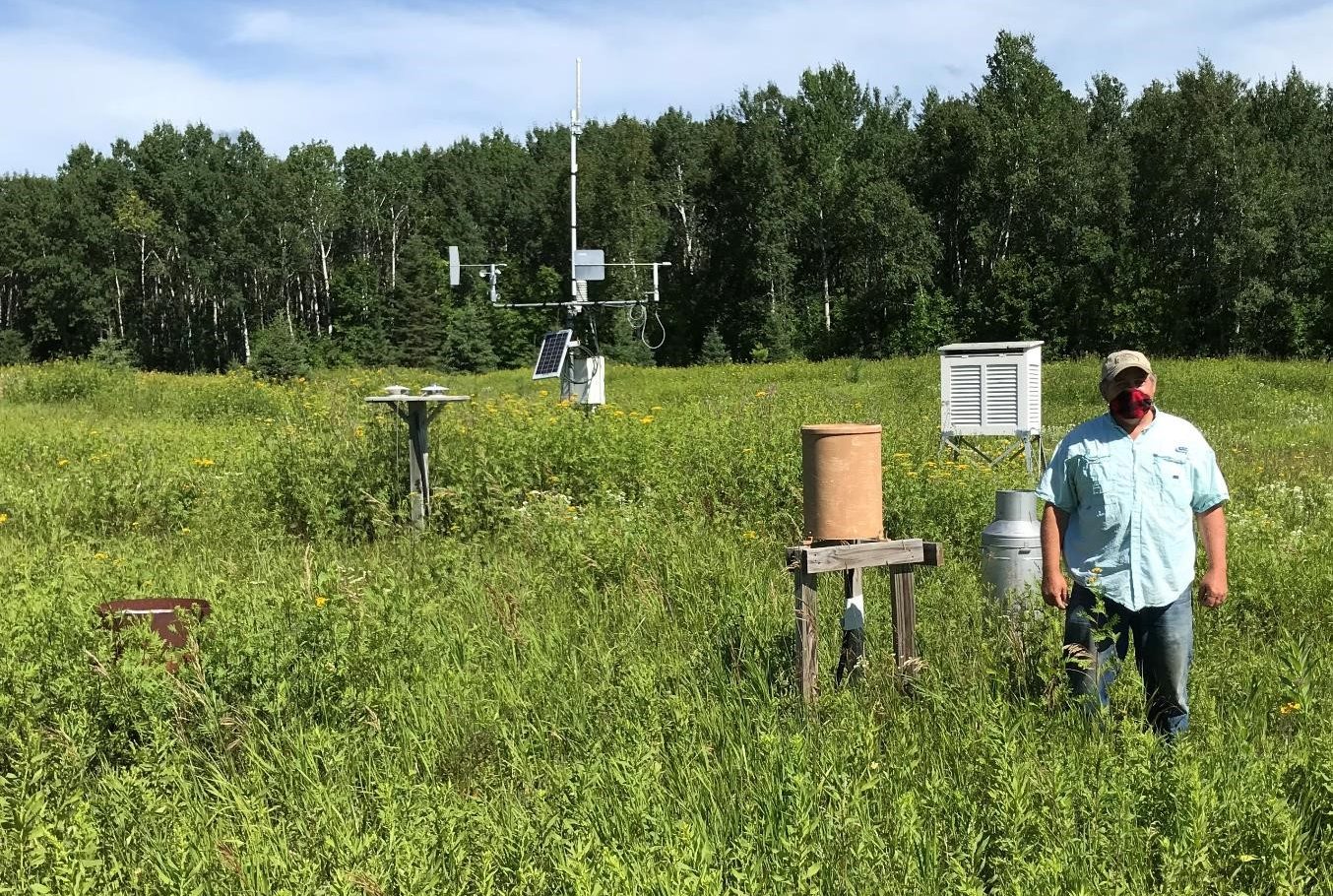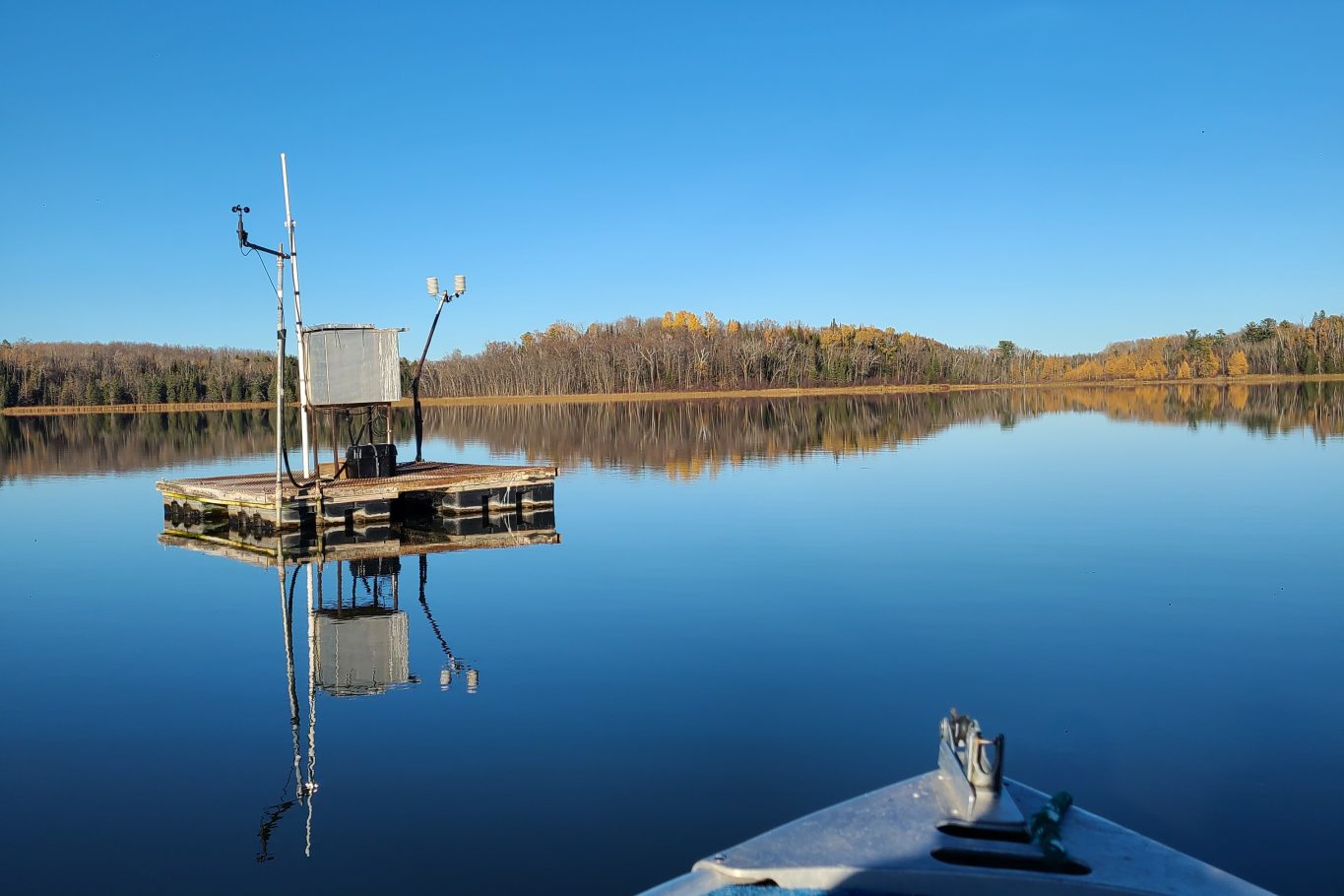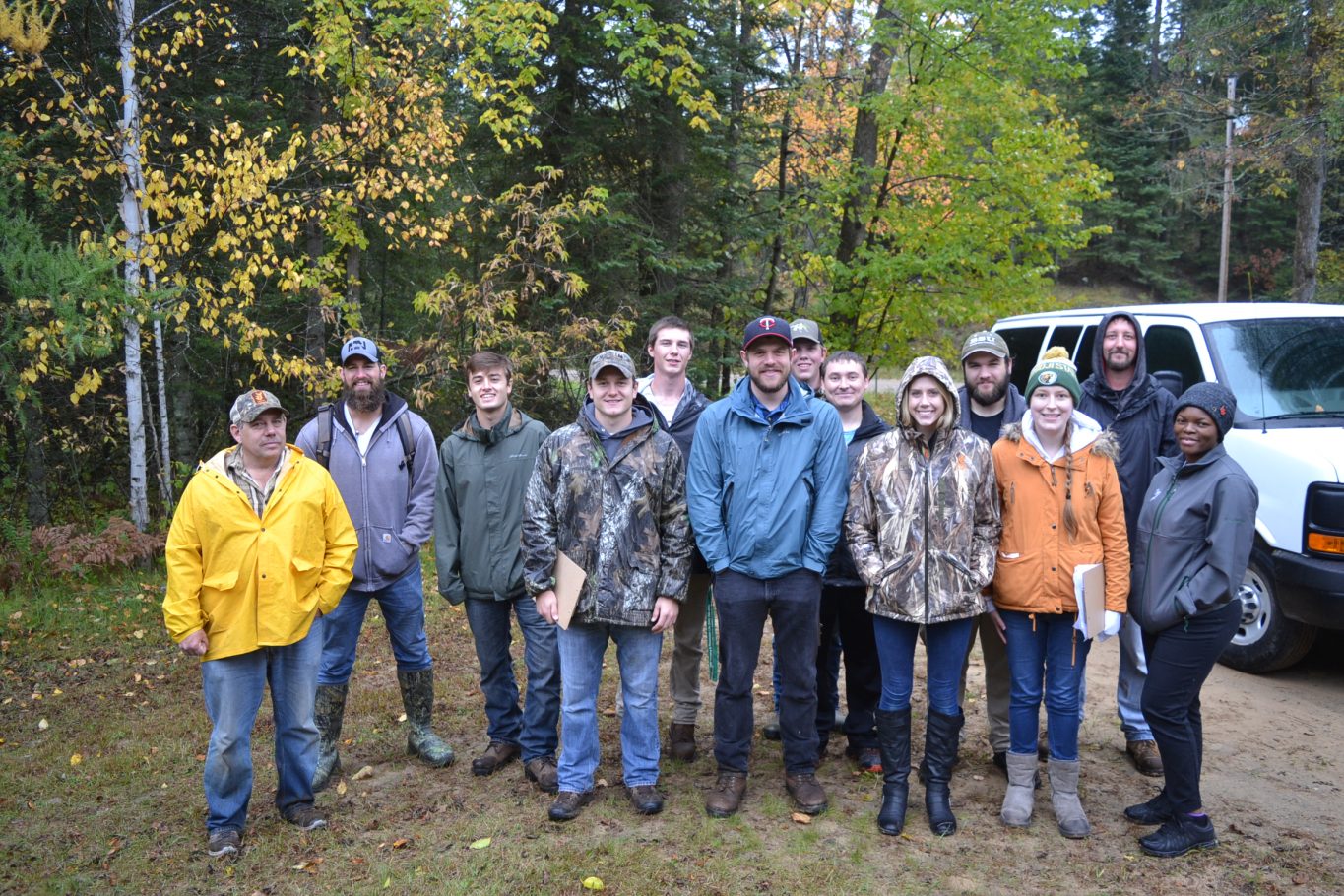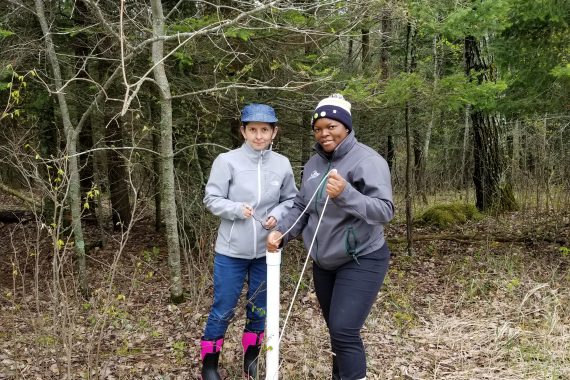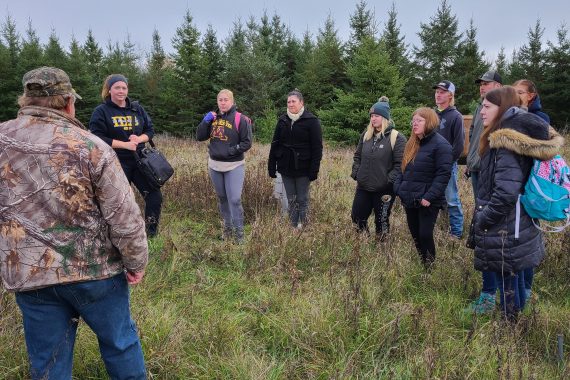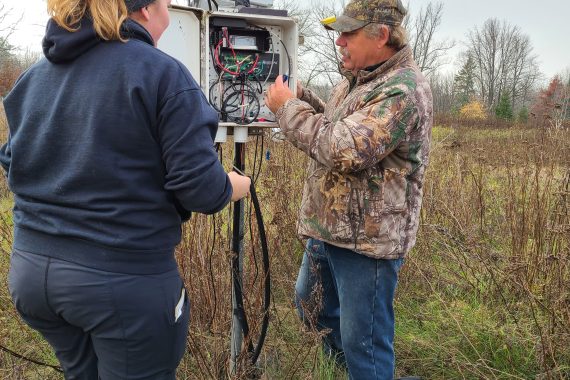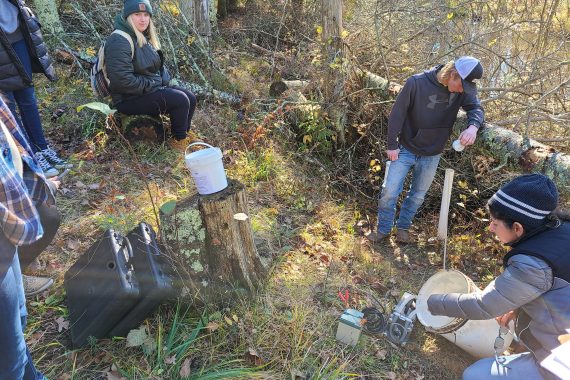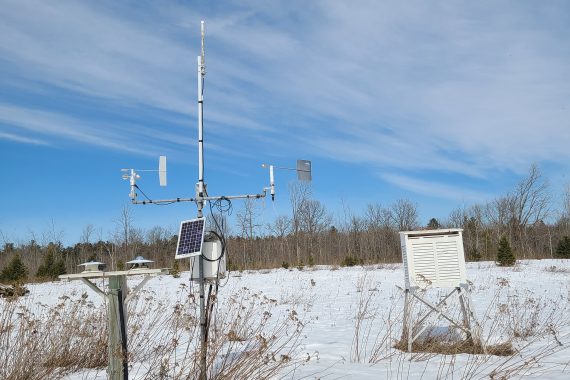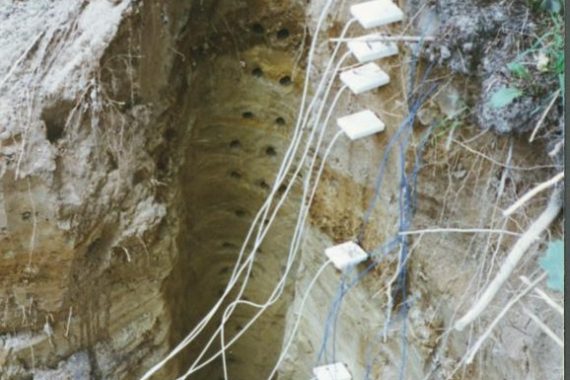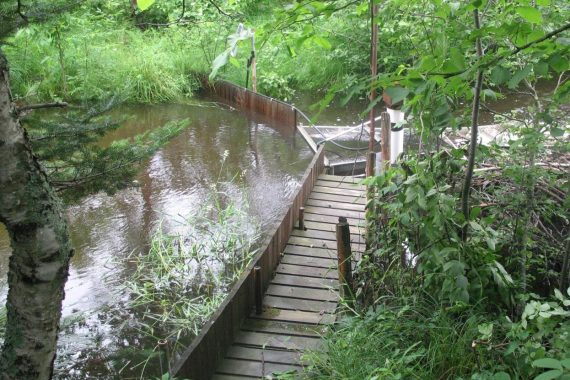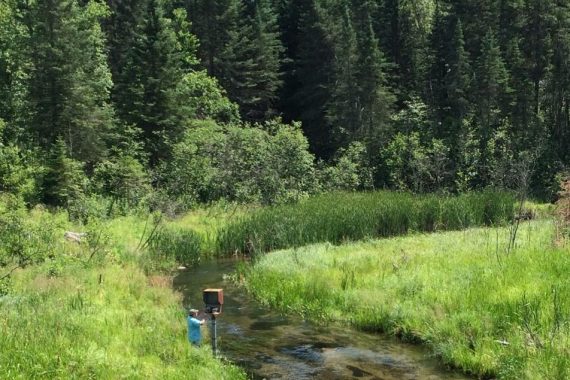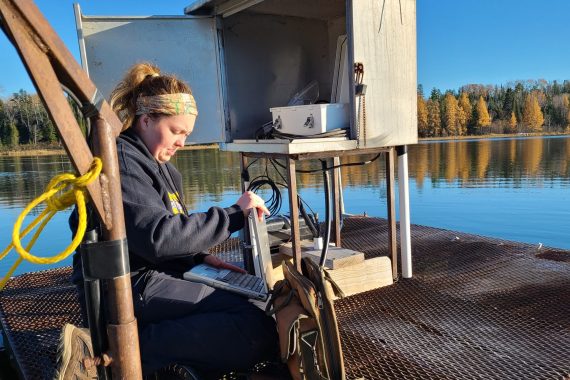
For 43 years, the United States Geological Survey has been studying a number of lakes, wetlands and streams near Akeley, Minnesota, as part of the Shingobee Headwaters Aquatic Ecosystems Project. Now, Bemidji State University is taking the reins as lead researchers for the initiative after the USGS donated the project’s entire infrastructure to the Center for Sustainability Studies in August 2021.
The donation included multiple land-, soil- and water-based field stations, boats, outboard motors, a canoe and tools to monitor the environment. These tools will help the university collect important data including air temperature, wind speed, soil moisture, streamflow, evaporation and precipitation for the area.
“This donation is great for students because hands-on work is more exciting than classroom work,” Dr. Miriam Rios-Sanchez, associate professor of geology, said. “You can take students to different monitoring stations where different types of data are being acquired.”
The Shingobee Headwaters Aquatic Ecosystems Project was launched and preserved in 1987 by a group of watershed scientists from the former National Research Program of the Water Resources Division of the USGS in response to extreme drought in Minnesota. It was initially limited to studying the effects of groundwater on lakes, but quickly expanded to explore the area’s broader ecosystems.
Considered a “grass roots” project, the Shingobee site was never fully integrated into a formal USGS program and after shifting it’s focus to nation-wide projects, the national geological survey ended its administration of the project.
As the new stewards of this effort, Bemidji State has access to more than 40 years of data taken from these various stations that can be used to further research and learning in or outside the classroom.
“We can also develop educational opportunities for other colleges and communities, and carry out research projects related to water resources, climate change and ecosystems,” Rios-Sanchez said.
Shingobee Lake has long been considered a lake of “particular resilience” according to the USGS, as it has limited public access with only four property owners throughout the 160-acre lake. Additionally, the lake’s groundwater discharge – the movement of groundwater from the subsurface to the surface – is naturally insulating which has protected the lake from the effects of climate change.
“Access to this site provide unique opportunities for students to acquire field experience monitoring environmental variables in a very pristine site, relatively close to campus, and with all the beauty of northern Minnesota,” Rios-Sanchez said.
The site also boasts a single-cabin field station which features wireless access to internet, two bedrooms for visiting scientists, a three-season meeting room, and kitchen and laundry facilities. Not included in the donation to Bemidji State, the USGS hopes the cabin, once sold, will remain an operations hub for students and faculty.
Data is collected from the site every few months and currently, Rio-Sanchez and her students are in the process of coordinating a real-time data stream that can be sent directly to BSU for monitoring.
Contact
Link:
2022-B-105

